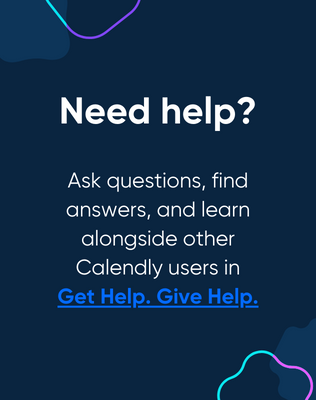When using the following API end point https://stoplight.io/mocks/calendly/api-docs/395/event_types
for fetching the List Of User's Event Types we have the option to sort and fetch the events on the basis of name using the sort option in the query parameters as mentioned here https://developer.calendly.com/api-docs/25a4ece03c1bc-list-user-s-event-types
sort
string
Order results by the specified field and direction. Accepts comma-separated list of {field}:{direction} values. Supported fields are: name. Sort direction is specified as: asc, desc.
Default:
name:asc
Example:
name
We see that there is no other option we can pass. Is there a way we can fetch the events based on the update_at of an event in descending order?
FYI: We are integrtating calendly in our CMS app, where we are making request to calendly to list user's events. It gives default 20 events sorted by Name
This will be not useful if user has multiple events and hence looking for a way to fetch latest updated events of user.




